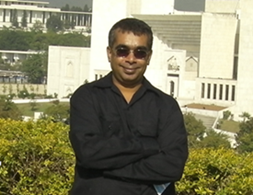By Mathew Maavak, a doctoral researcher in Security Foresight at Universiti Teknologi Malaysia (UTM)

On April 24, Armenians had commemorated the 101st anniversary of the 1915 genocide that consigned 1.5 million men, women and children to a torturous end. The Anglo-Saxon world, which was battling the Turks during this period, appeared powerless as another 700,000 Assyrian and Syrian Christians, 350,000 Greeks and an unspecified number of Syrian Muslim intellectuals were killed at the hands of Young Turks and the Kurds.
Since 1915, Turkey had invaded and occupied Northern Cyprus, and had suppressed Kurdish nationalism through unfettered pogroms. Turkey’s decimation of minorities, especially Christians in the Middle East, was emulated by its regional co-brethren for another 100 years, culminating in a similar, ongoing genocide in Syria and Iraq. History has come full circle due to the collusions and cowardice of a West-defined “international community.”
Few communities have suffered as protractedly as the Armenians, Assyrians and assorted Middle Eastern minorities have in a century of “US exceptionalism.” Ironically, one can compare the number of UN sanctions proposed against Israel since 1947 and look if any motions proposed against Saudi Arabia were issued during the same period.
Sanctioning Saudi Arabia, not Israel, has been the US’ age-old red line. The usual American veto is to favor Israel as part of the West’s good cop-bad-cop geopolitical circus. The May 4 Jewish Holocaust Remembrance Day was commemorated amidst the backdrop of US-sanctioned neo-Nazi thuggery in Ukraine, and a rise of anti-Semitism all over Europe.
Did someone say “Never again!”?
Greater Eurabia is America’s “Free World”
Since 1915, the US has taken over colonial Britain’s lead in completing a contra-civilizational compact in the form of an undeclared “Greater Eurabia.” It is an agglomeration of perceived dictatorships, sharia regimes, and soon-to-be failed states.
Greater Eurabia decides what is wrong and right; what constitutes an infringement of international law; what constitutes a war crime and who should be punished. Double-standards flow and China will be condemned for building outposts in the South China Sea. Russia will be castigated over Crimean reunification.
Obama had a message for Beijing with regard to ASEAN (Association of Southeast Asian Nations) and the South China Sea in his Washington Post Op-ed dated May 2. He wrote,
“… America should write the rules. America should call the shots. Other countries should play by the rules that America and our partners set, and not the other way around.”
The US biggest fear was captured by Obama’s statements.
“…Asia-Pacific region will continue its economic integration, with or without the United States. We can lead that process, or we can sit on the sidelines and watch prosperity pass us by.”
Greater Eurasian autarky is the West’s worst nightmare.
Instead of global accommodation, the West is raising the stakes of its double standards. A US judge can order Iran to pay $US10 billion in damages to families of 9/11 victims despite Tehran having had nothing to do with the terror attack. The same judge had cleared Saudi Arabia of any culpability despite 15 of the Magnificent 19 identified as Saudi nationals. The White House and US Congress concurred.
Obama’s rationale for the judgment was timeless: “If we let Americans sue Saudis for 9/11, foreigners will begin suing US non-stop.” Iran was exempted, as well as an increasing number of nations standing up to the US.
Irrelevancy of some international organizations
Many UN drafts to impose sanctions on other nations are reinterpreted by the US to satiate its geopolitical wishes.
Between 2012 and 2015, the UN Security Council (UNSC) passed eight resolutions concerning Syria. Although the wording of each was neutral, the US and its allies depicted them as a “unanimous” international condemnation of Damascus. Resolution 2209 (2015) was noteworthy: While the envoys of Russia and China condemned the use of chemical weapons in Syria, both avoided blaming any party before formal investigations were completed. The US ambassador to the UN, Samantha Power, however blames Bashar al-Assad’s culpability in the official draft. Later, an 85-page UN report issued on Dec 13, 2013 acknowledged that chemical weapons were used – against Syrian “soldiers and civilians!”
Meanwhile, up to 500,000 Syrians have been killed, many of them via beheadings, crucifixions and immolations. More creative execution methods include RPG firing squads and freezing deserters to death. How can the Islamic State afford such sadistic extravagance?
The Syrian human toll does not include the rapes, enslavement and forced conversions perpetrated on the Yazidi and Christian minorities. While this article is being read by someone, somewhere, a minority Syrian girl is being caged, raped in captivity or sold off by terrorists.
Blood inevitably flows, lives will be snuffed out and targeted nations will be ruined. (Luckier countries like Cuba and Iran only get sanctioned). It doesn’t matter that the statistics are incriminating. If the US had militarily intervened in 30 nations in the past 30 years, all 30 of them would be showpiece basket cases. One study claims that the US had “killed More Than 20 Million People in 37 countries since World War II.”
One should ask: As a pan-Eurasian institutional and arbitration complex takes shape, is a US-centric model relevant anymore?

Mathew Maavak
( The opinions expressed here do not necessarily reflect the opinions of Panview or CCTV.com. )

Panview offers an alternative angle on China and the rest of the world through the analyses and opinions of experts. We also welcome outside submissions, so feel free to send in your own editorials to "globalopinion@vip.cntv.cn" for consideration.















